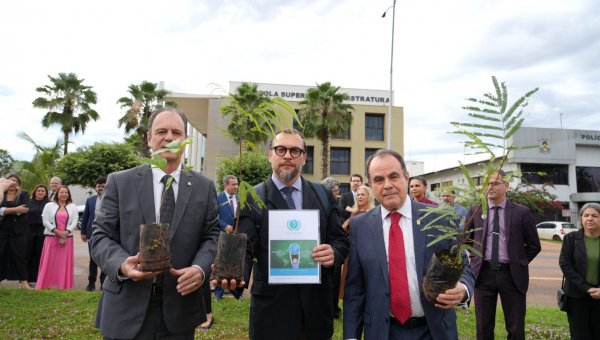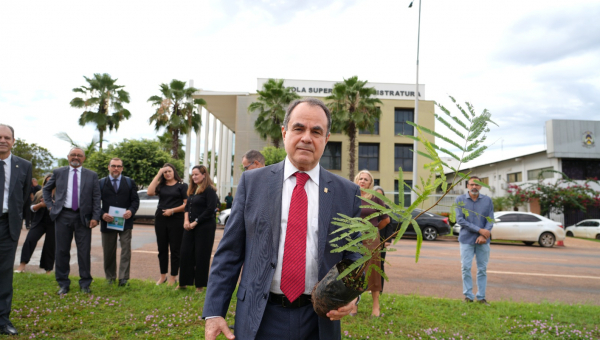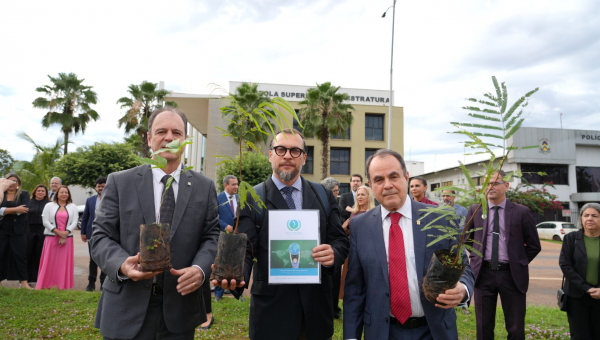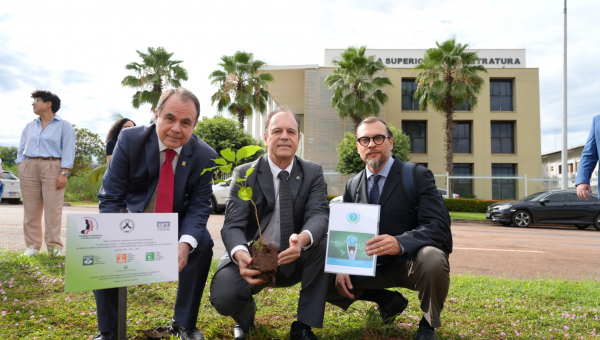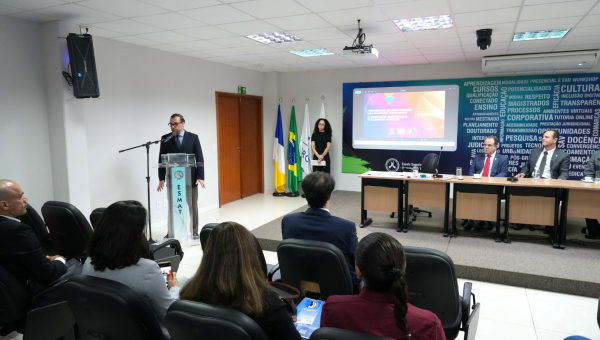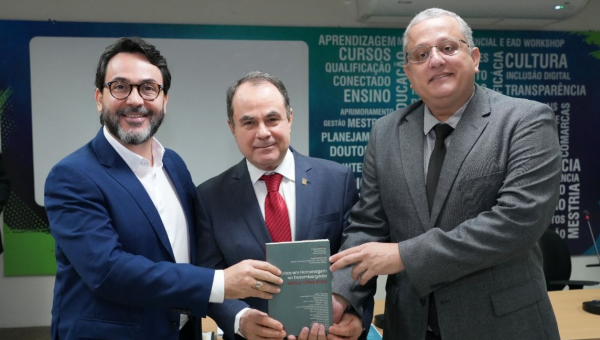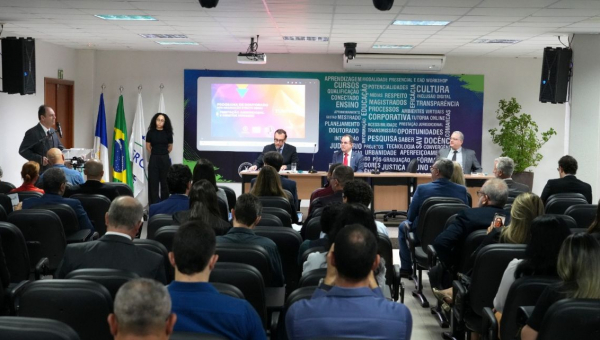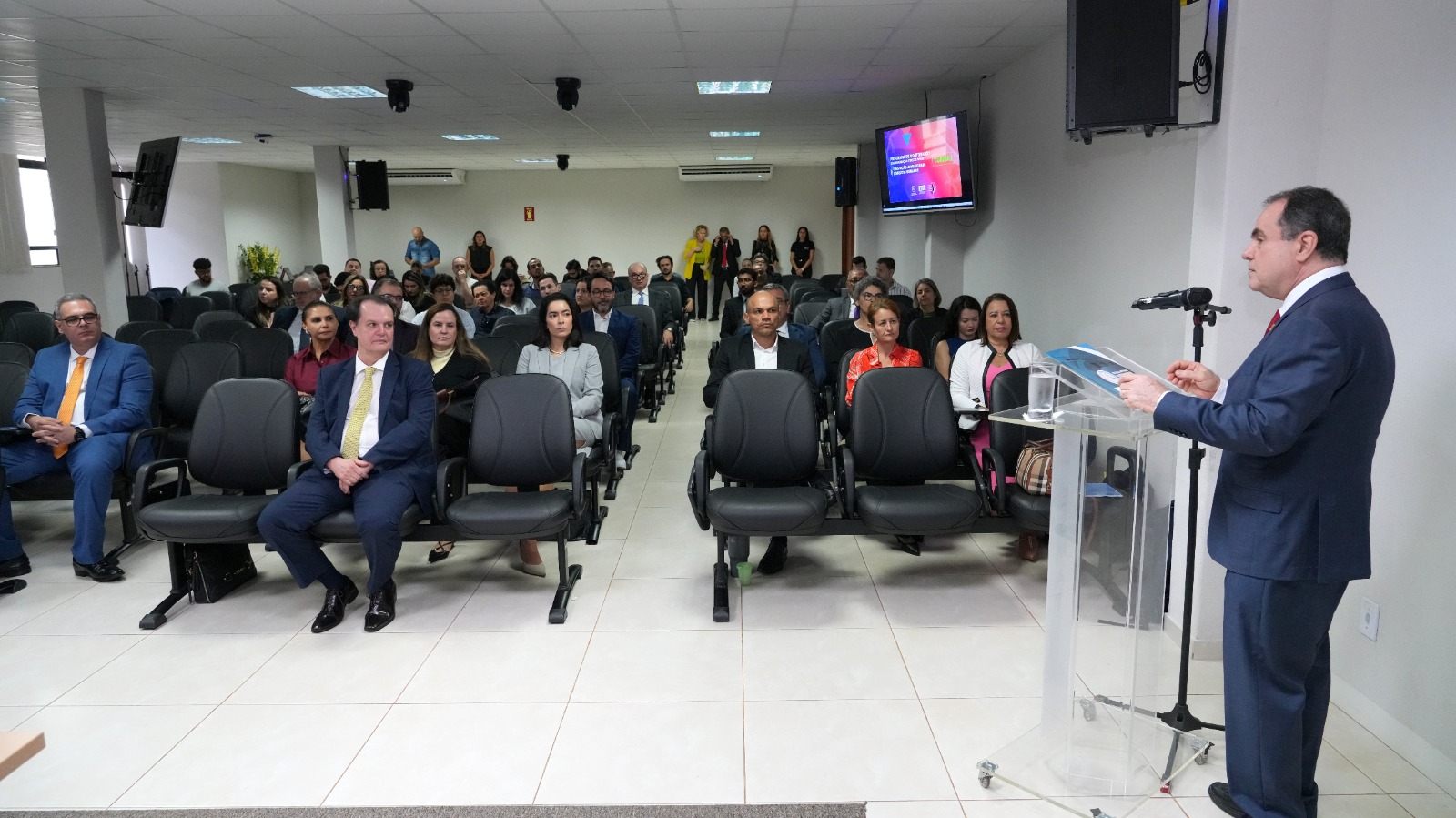
On Monday morning (April 7th), the Superior School of the Judges of the State of Tocantins (ESMAT) held the magna class of the first doctoral class and the thirteenth master class in Judicial Provision and Human Rights. The event, which was attended by academic and legal authorities, marked the beginning of a new phase for the program, consolidating excellence and expanding legal training in the state of Tocantins.
During his speech, Justice Marco Villas Boas, general director of Esmat, highlighted the continuous effort to consolidate the interdisciplinary master's and doctoral programs, highlighting the support received since the proposal was conceived by Justice Antônio Rulli Júnior. Villas Boas emphasized that the program has borne significant fruit both in training professionals and in promoting human rights, especially in the context of the state of Tocantins. “This mission has not only borne good fruit in the quality of the academic work presented over more than a decade, but has also provided breadth in the judicial system and in the various areas of knowledge,” he said.
Professor Luís Eduardo Bovolato, dean of the Federal University of the state of Tocantins (UFT), highlighted commitment of Esmat to excellent academic training and the strengthening of interdisciplinary research. "The partnership between UFT and Esmat has been fundamental in consolidating the quality of legal training in the state of Tocantins, providing a space for exchanging knowledge and continuous improvement," he said.
Another highlight was the speech of Doctor Professor Tarsis Barreto, coordinator of the master’s and doctoral courses. He stressed the importance of strengthening academic and professional links between master’s and doctoral classes, promoting an environment of collaboration and exchange of knowledge." The beginning of this new stage represents a unique moment to broaden the horizons of legal knowledge, consolidating an academic space that values dialogue and interdisciplinarity. Today the first class of doctorate is born, but not only it is born, she is amalgamated with the thirteenth class of the master’s degree", he recalled.
Symbolic planting
Before the official opening, a symbolic act of planting trees native to Brazilian biomes was carried out, including the acorn bean (Fava de Bolota), symbol of the state of Tocantins, and the Ipê, national flower. The initiative reinforced the commitment of Esmat to sustainability and the Sustainable Development Goals (SDGs) of the 2030 Agenda, highlighting the importance of a healthy environment as a human right.
Recognition and tributes
During the ceremony, medals were awarded to personalities who contributed to legal training in the state of Tocantins. The dean Luís Eduardo Bovolato was awarded with the Medal of Academic Merit from Esmat, while Professor Eduardo Bianca Bittar received the "Justice Antonio Rulli Junior" medal.
Book launch
As part of the celebrations, Esmat also held the launch of the book: "Writings in Honor of Justice Marco Villas Boas". The collective work brings together articles by lawyers and academics that highlight the contribution of the general director of ESMAT to the development of law and the promotion of human rights in Brazil. With reflections on judicial provision, innovation in the judiciary and defense of fundamental rights, the book reaffirms the commitment of the institution to legal training of excellence.
Reflections on the human rights
The magna class was led by Professor Eduardo Bianca Bittar, with the theme on "Education in Human Rights and Latin American Vulnerabilities: a perspective of analysis from the Brazilian reality". In his speech, Bittar stressed the need for a critical and reflective approach to human rights practices, highlighting that "Strengthening human rights education requires an attentive look at the local realities and vulnerabilities that permeate Latin American populations". The lecture raised reflections on the challenges of human rights education, especially in the context of vulnerable populations, and reinforced the role of the academia in promoting justice and equality.
The magna class of Esmat represented not only a new academic cycle, but also a moment of reflection on the advances in legal education and the importance of critical and humanistic training for professionals of the justice system. The professors of the program have a strong commitment to the defense of human rights. They are professors dedicated to society and science, who will continue to seek the excellence of the program and the continuous improvement of academic training.




